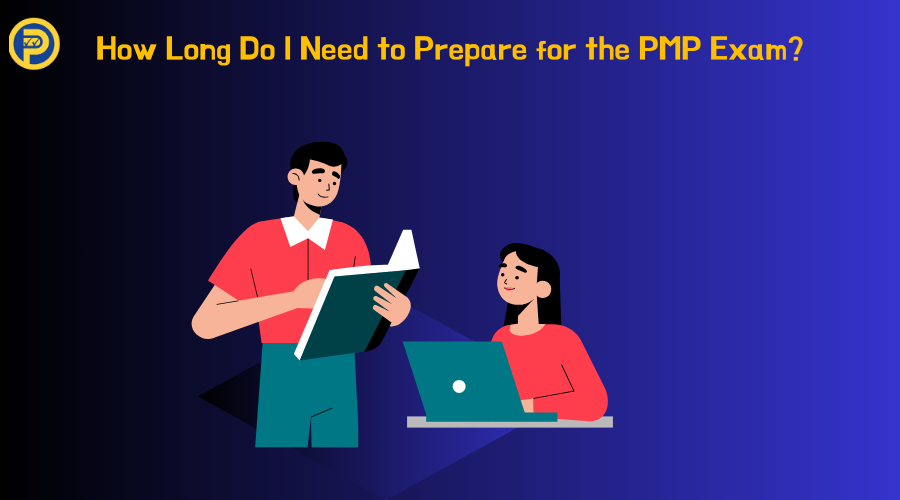Preparing for the Project Management Professional (PMP) exam is a significant commitment that requires careful planning and dedication.
The duration of preparation varies among candidates, influenced by individual experience levels, study habits, and available time. Understanding how long to prepare can help you create an effective study plan that maximizes your chances of success.
Recommended Preparation Time
Most experts recommend dedicating 2 to 3 months for PMP exam preparation. This timeframe allows candidates to thoroughly review the material, practice with mock exams, and reinforce their understanding of key concepts.
However, some candidates may require more or less time depending on their prior knowledge and experience in project management.
For those with extensive experience and familiarity with project management principles, a shorter preparation period may suffice. Conversely, individuals new to project management might benefit from a longer study duration to ensure they grasp all necessary content.
You can kickstart your exam preparation by using our PMP Test Prep resources.
Study Hours and Commitment
On average, candidates typically invest 60 to 120 hours in studying for the PMP exam. This includes time spent reviewing the PMBOK® Guide, taking practice exams, and engaging in supplementary study materials.
It’s essential to break down this study time into manageable sessions, allowing for consistent progress without overwhelming yourself.
Creating a study schedule that allocates specific hours each week can help maintain focus and motivation. For example, setting aside 10-15 hours per week over two months can lead to effective preparation without causing burnout.
Utilizing Training Resources
One prerequisite for taking the PMP exam is completing 35 hours of project management education. This requirement can be fulfilled through various training programs, which not only provide essential knowledge but also help identify weak areas that need further attention during independent study.
Candidates should leverage their training sessions to build a solid foundation in project management concepts. Engaging with instructors and participating in discussions can enhance understanding and retention of material.
Practice Exams and Mock Tests
Incorporating practice exams into your study plan is crucial for effective preparation. Mock tests simulate the actual exam environment and help candidates become familiar with the question format and time constraints.
Many experts recommend taking multiple practice exams throughout your study period to track progress and adjust your study strategy accordingly.
It’s advisable to schedule these practice exams towards the end of your preparation period. Analyzing results from these tests will highlight areas needing improvement and boost confidence before the actual exam day.

Continue reading: How to Study for the PMP Exam: Your Guide to Passing
Final Weeks Before the Exam
As the exam date approaches, it’s essential to refine your focus on key areas while maintaining a balanced study routine. In the final weeks, prioritize reviewing challenging topics and practicing time management strategies for answering questions efficiently during the exam.
Consider simulating the exam experience by timing yourself while answering questions to develop pacing strategies. Remember that you will face 180 questions over approximately 230 minutes, including breaks.
FAQS
Can You Pass the PMP in 30 days?
Yes, it is possible to pass the PMP exam in 30 days, but it requires intense dedication and a structured study plan. Candidates should aim to study 2-3 hours daily, focusing on key topics outlined in the PMBOK® Guide.
Utilizing resources like practice exams and study groups can enhance understanding.
While some have successfully passed within this timeframe, it's crucial to assess your prior knowledge and experience in project management, as this will significantly impact your ability to prepare effectively in just one month.
How Hard is it to Pass the PMP Exam?
The PMP exam is considered challenging, with a pass rate of around 60% on the first attempt. Its difficulty stems from the need to apply project management principles in real-world scenarios rather than simple memorization.
Candidates face application-based and situational questions that test their understanding of a broad syllabus, including initiating, planning, executing, monitoring, and closing projects.
Effective preparation, including studying the PMBOK® Guide and taking practice exams, is essential for success. With dedicated effort, passing is achievable.
How to get 35 hours of Project management Education for PMP?
To obtain the required 35 hours of project management education for the PMP exam, candidates can enroll in various training options.
These include professional courses offered by PMI Registered Education Providers (REPs), online training programs, workshops, and university courses that cover project management knowledge areas.
Employer-sponsored programs also qualify. It's essential that the training includes specific content related to project quality, scope, time, cost, and risk management. Ensure you document all hours completed to meet PMI's eligibility criteria.

